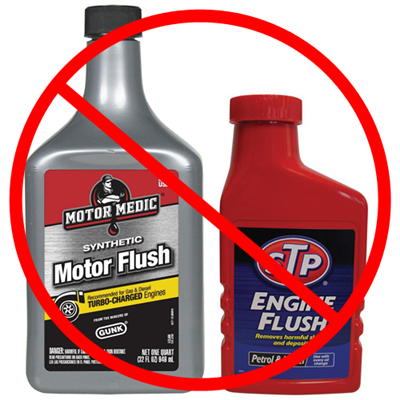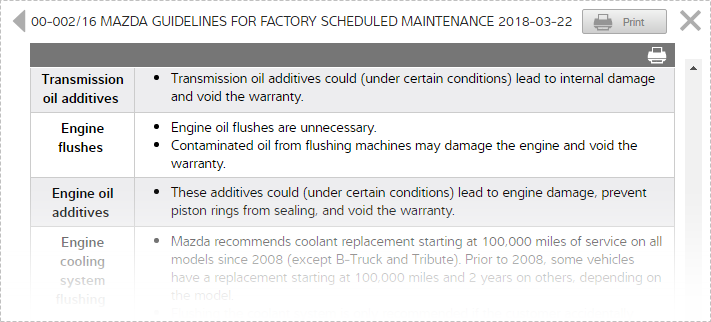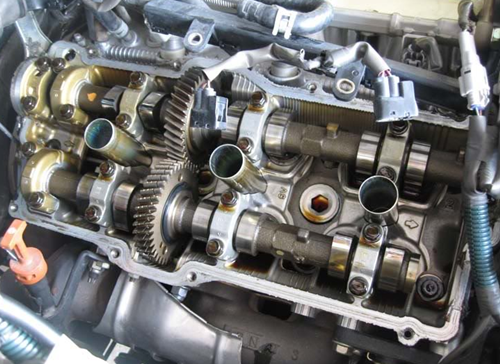How To Clean Engine Before Oil Change
Services that you DON'T need: Crankcase Flushing

When you come in for an oil change, some lube shops; dealerships; and other businesses may try to sell you a crankcase flush. This service may also be called a motor flush, hot oil flush, or engine flush.
What exactly is a crankcase flush? This service involves adding a solvent or strong detergent to your engine oil; running the engine for a little while to let it circulate through; and then changing the engine oil and filter. These chemicals are supposed to break up and clean out the gunk, varnish and build-up that can form inside your engine, allowing it to be drained out with the engine oil. While this sounds great in theory, there are four main reasons why these services are a bad idea:
Fact #1: You probably don't need a crankcase flush.
Even if these services did work – and work safely – your car probably wouldn't benefit from a crankcase flush. While varnish and sludge can build up in a poorly maintained engine, this normally never happens when your oil changes are performed regularly. Even if your engine has been a little neglected for a while, new oil contains detergents that will safely clean your engine over the coming months and years.
The vast majority of engines on the road are quite clean inside, and will stay that way as long as their maintenance is kept up. Change your oil regularly; use a quality filter; and you'll be just fine.

Fact #2: Crankcase flushing may void your warranty.
Almost every vehicle manufacturer has released technical service bulletins or other documentation where they recommend against performing crankcase flushes. Not only is the service unnecessary, they say, but it can also damage your engine. If your vehicle is under warranty and you experience an engine failure, the servicing dealership will likely ask you to produce your maintenance records. If your maintenance receipts include a record of performing a crankcase flush, some manufacturers will deny the warranty claim.
Here's an excerpt from a General Motors service bulletin about this:

Fact #3: Crankcase flushing can damage your engine.
As General Motors alludes to in the publication above, engine flushes can damage your engine. The chemicals in flushing additives can damage engine seals, leading to expensive repairs in the event of an oil leak. These chemicals can also damage engine bearings; turbochargers and other oil-lubricated components.
Most engine flushing chemical manufacturers claim their products are "safe" but the reality is that these companies aren't providing your powertrain warranty; your car manufacturer is. When most car manufacturers say crankcase flushes are a bad idea, it's best to follow their recommendations. Here is part of a service bulletin from Mazda, who also recommends against engine flushes:

Fact #4: Crankcase flushes are a waste of money.

If most vehicles on the road don't need a crankcase flush, why do so many businesses sell them? Because they're an easy money-maker; that's why. Customers are paying 40 dollars or more for the "service" of pouring a $5 bottle of chemicals into their oil, and then idling their engine for ten minutes.
At My Garage, we are major proponents of maintaining your vehicle properly. We recognize that the cost of maintaining safe, reliable transportation isn't cheap. That's why we will continue to advocate against money-wasting and unnecessary services like crankcase flushes, and make sure our clients' investment is always directed towards services they actually need. Have any questions? Please feel free to call or message us at any time!
How To Clean Engine Before Oil Change
Source: http://mygarageairdrie.ca/services-pricing/maintenance-services/services-you-dont-need-crankcase-flushing/
Posted by: woodspationol.blogspot.com

0 Response to "How To Clean Engine Before Oil Change"
Post a Comment